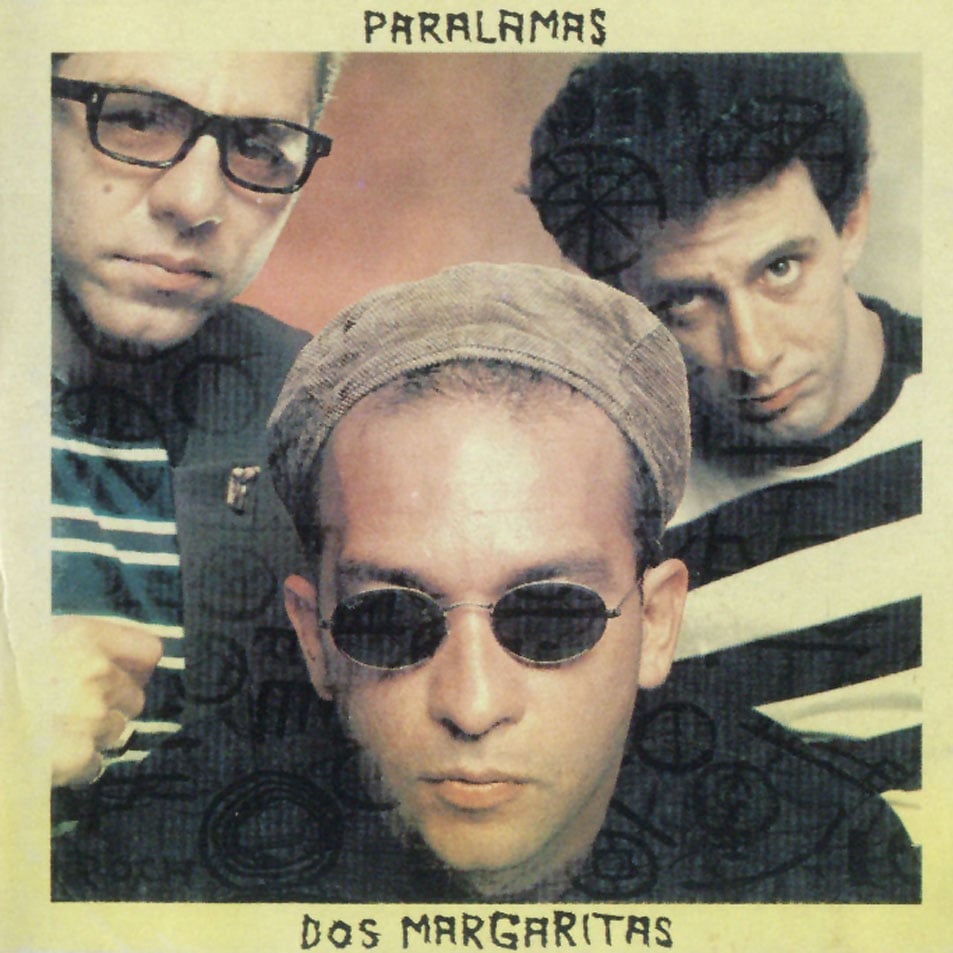
- Dos Margaritas
- Released in: 1994
Engaging the universal theme of the pursuit of happiness and satisfaction, this song offers a pessimistic perspective on the possibilities of attaining such a goal.

Engaging the universal theme of the pursuit of happiness and satisfaction, this song offers a pessimistic perspective on the possibilities of attaining such a goal.
One of the big bands that emerged from the Brazilian pop/rock scene in the 1980s, Os Paralamas do Sucesso – literally, “the fenders of success” or “the mudguards of success” – have remained one of the country’s most influential musical groups ever since. Perhaps, calling them a “big band” is not very accurate, since they have used a typical “power trio” rock band formation throughout their professional career, with only guitar, bass, and drums. However, Paralamas (as they are affectionately called by fans) are certainly big in many other ways. Since their early days, they have been known for transcending the boundaries of genre and combining their rock roots with influences from reggae and Latin American, African, and regional Brazilian rhythms and instruments.
While this diversity of styles is now widely appreciated for contributing to the group’s originality, some of their albums – particularly those from the early 1990s – proved too experimental or complex for fans and music critics alike. The band hit rock bottom with Severino, released in 1994, which sold only around 50.000 copies, their worst sales record. Paralamas’s subsequent album, Vamo Batê Lata, from 1995, sold almost a million copies and reverted their downward trend, reassuring everyone that one of the country’s most important bands still knew how to make great music. This return to success eventually motivated a reevaluation of Paralamas’s earlier work and the rediscovery of hidden gems like the song “Dos Margaritas,” from Severino.
Engaging the universal theme of the pursuit of happiness and satisfaction, this song offers a pessimistic perspective on the possibilities of attaining such a goal. Herbert Vianna, author of the song, mentions various seemingly appealing options – some of which he recognizes as absurd – only to conclude that nothing would make him happier than having a drink or two.

Some verses are straightforward, but the meaning of others may be trickier due to slang and cultural references. In the third line, for example, the word “vaca” can literally mean a “cow” or, figuratively, a “loose woman.” But it’s hard to tell which of these someone would be happy to drop from the 10th floor of a building. The term “sertões,” from the fourth verse, refers to the semiarid rural regions in northeastern Brazil, an area known for its natural beauty and cultural richness, despite its inhospitable environment. One of the options for attaining happiness proposed by the song is to travel through the “sertões,” which is supposed to be a wonderful – if challenging – experience (especially because of the extreme heat, which is why people prefer to travel “under the moon,” that is, at night).
“Vital,” mentioned in the seventh line, is Paralamas’s former drummer, who left the band early in their career, before they had even recorded their first album. Yet another way the singer could be happy is if his friend had written the Constitution. This may seem like an odd idea, especially to readers from countries where the Constitution was written centuries ago. But that is not the case with Brazil. After being under a totalitarian military dictatorship for two decades, a process of re-democratization in the mid-80s led to the promulgation of a brand-new Constitution in 1989, to guide the nation through a new stage in its history. The early 90s were times of political and economic instability, with many amendments to the Constitution being proposed. With this bit of context, it’s a little more understandable why someone would suggest that they would be happy if a friend had written the laws, as these would likely favor them.

Most of the other verses refer to common human hopes, suggesting that one could attain happiness by changing one’s physical appearance (getting a haircut and “changing the nose,” that is, undergoing cosmetic surgery), having romantic relationships (kissing someone in Paris or “never liking people who do not like me”), attaining personal accomplishments (being more than one person, that is, doing more than one person can do), ignoring one’s own scruples and moral sense, or forgetting one’s own mistakes.
Vianna’s conclusion is that, while he would be happy with the above options, even if some are absurd, nothing would be better than having “dos margaritas” (two margaritas). The use of Spanish in this last bit of the chours, as well as the inclusion of bass instruments throughout, attest to the band’s Latin influences and perhaps acknowledge the recognition of fans in neighboring South American countries, where Paralamas remained very popular even while receiving harsh criticism in Brazil.